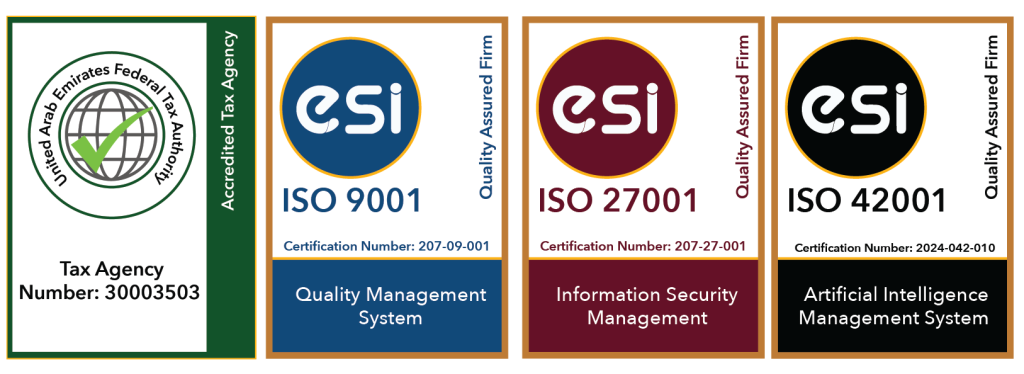The UAE Ministry of Finance has confirmed plans to implement the OECD’s Crypto Asset Reporting Framework (CARF) which is subject to public consultation concluding November 2025.
CARF sets global standards for collecting and exchanging tax relevant information on cryptoasset transactions and will apply to exchanges, brokers, custodians, and certain wallet or platform providers operating in the UAE. The rules are scheduled to take effect from 2027, with the first automatic international exchange of information in 2028.
This article explains what CARF is, why the UAE is adopting it, and what individuals and businesses need to do to prepare for the reporting obligations starting in 2027 with the first international exchange in 2028.
Global Context: OECD’s CARF and Its UAE Adoption
The Crypto Asset Reporting Framework (CARF), introduced by the OECD in 2022, was designed to close gaps in global tax transparency. Traditional banking transactions are already covered under the Common Reporting Standard (CRS), but crypto assets fell outside its scope. CARF addresses this by requiring service providers to collect, verify, and report information on crypto transactions.
By adopting CARF, the UAE will:
- Align with international best practices in tax transparency and information exchange.
- Reinforce its standing as a credible hub for digital assets by offering clearer regulatory expectations for market participants.
- Complement wider financial integrity efforts, supporting the country’s commitment to global standards alongside existing AML/CFT frameworks.
This initiative supports the UAE’s goal of balancing innovation in the digital economy with regulatory credibility.
What CARF Means for Crypto Investors in the UAE
Although the UAE does not levy personal income tax on individuals, CARF introduces crossborder transparency that may affect persons who are tax resident elsewhere. If an individual is tax resident outside the UAE, foreign tax authorities may receive information about their cryptoasset transactions carried out through UAE based reporting platforms once exchanges of information begin.
Likely obligations for individuals include:
- Disclosure of Transactions: From 2027, covered transactions (e.g., buys, sells, exchanges, certain transfers) will be reported by inscope service providers to the UAE competent authority for exchange in 2028.
- Record-Keeping: Individuals must maintain accurate records of wallet addresses, trade history, transaction values, and fiat conversions to support any foreign filing requirements.
- Tax Residency Considerations: An individual tax resident outside the UAE may face personal tax obligations under their homecountry laws once information is shared under CARF.
How Individuals Should Prepare for Crypto Tax Reporting
Checklist for Individuals
| Preparation Step | Action Required |
| Use Compliant Platforms | Trade on UAE-licensed or internationally recognized exchanges that will meet CARF standards. |
| Maintain Logs | Keep detailed personal transaction records, including dates, amounts, asset types, wallet addresses, cost basis, proceeds, and fiat conversions. |
| Review Tax Treaties | Confirm if home country has double taxation agreements or specific crypto tax rules. |
| Prepare for Audits | Be ready to provide transaction records if requested by tax authorities. |
Tax Implications for UAE Crypto Businesses and Intermediaries
Exchanges, custodians, brokers, and certain wallet or platform providers operating in the UAE will face the most significant operational changes. Under CARF, these entities are expected to qualify as Reporting Crypto Asset Service Providers (RCASPs) and must perform due diligence, collect Tax Residency information, and submit annual reports to the UAE Ministry of Finance for exchange with partner jurisdictions.
Key obligations for businesses include:
- Due Diligence and KYC: Identify customers and determine their tax residency, integrating CARF requirements with existing AML/CFT controls.
- Annual Reporting: Submit prescribed data on covered transactions and relevant balances to the UAE Ministry of Finance for international exchange.
- System Upgrades: Implement IT capabilities to capture, standardise, and transmit data using the OECD’s CARF technical format.
- Compliance Integration: Update policies, procedures, and governance to reflect CARF alongside CRS, AML, and local regulatory frameworks.
How Businesses Should Prepare for CARF
| Preparation Step | Action Required |
| Review Public Consultation | Participate in the UAE Ministry of Finance consultation (15 Sep–8 Nov 2025) and monitor resulting ministerial decisions. |
| Map Transaction Flows | Document activities such as trading, staking, lending, and custody. |
| Update Compliance Manuals | Align onboarding, remediation, and reporting workflows with CARF rules and data fields; integrate with AML/CFT. |
| Budget for Technology | Build a CARF data model, validation checks, exception handling, and secure transmission aligned to OECD schemas. |
| Train Compliance Teams | Prepare staff for new reporting requirements and systems. |
Strategic Perspective
The introduction of CARF reporting obligations reflects a global shift toward transparency in the taxation of crypto assets. For the UAE, the framework provides both opportunities and challenges.
- Opportunities: Strengthens the UAE’s reputation as a responsible financial centre and gives market participants clearer expectations for crossborder reporting.
- Challenges: Businesses that fail to implement compliance measures risk penalties, reputational damage, and potential restrictions on banking and licensing.
The timeline is clear:
- 2025: Public consultation open until November.
- 2027: UAE reporting obligations take effect.
- 2028: First international exchange of crypto tax information.
This phased rollout gives time to prepare, but early action reduces operational and regulatory risk.
Risk Areas
Certain practices may increase exposure to compliance risks, including:
- Using offshore or unregulated exchanges.
- Delaying compliance system upgrades.
- Operating without proper licensing or failing to meet AML/CFT obligations.
For both individuals and businesses, proactive steps will reduce the likelihood of audits, penalties, or disruption to operations.
Conclusion
The UAE’s adoption of CARF brings cryptoasset reporting in line with global standards. While the UAE does not impose personal income tax on individuals, CARF enables crossborder information sharing that may affect those tax resident elsewhere. For individuals, good recordkeeping and an understanding of foreign obligations are essential. For businesses, the priority is to upgrade systems, embed CARF into onboarding and reporting, and train teams well before 2027. Early preparation will support compliance and reinforce the UAE’s position as a secure and credible hub for crypto investment and innovation.
About SimplySolved
As a UAE FTA-approved Tax Agency and ISO 9001, 27001, and 42001 certified provider, SimplySolved supports UAE businesses with CARF readiness and crypto asset reporting tailored to both local and cross-border requirements. Our consultants define in-scope activities, perform gap assessments, align customer due diligence and tax residency classification with CARF rules, and integrate KYC/AML controls with reporting needs. Services include data mapping to the OECD CARF XML, reporting workflow design, automation of UAE Ministry of Finance submissions for the 2027 go-live, and preparation for international exchanges in 2028.
Our approach combines practical guidance with structured processes to deliver audit-ready records, stronger governance, and reduced operational risk. This enables internal teams to focus on growth while ensuring reliable, cost-effective compliance for CARF and related crypto-asset reporting obligations in the UAE.





